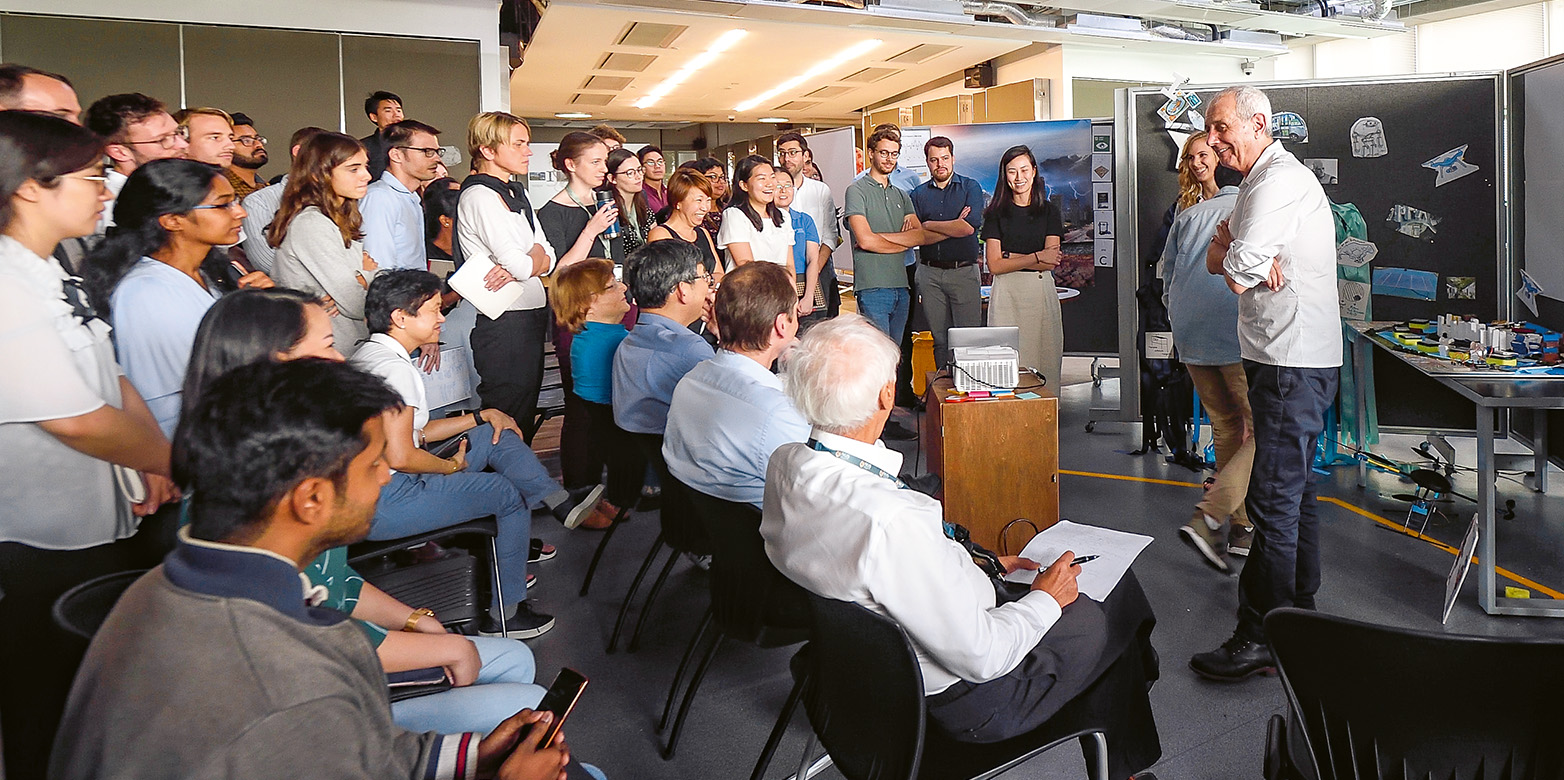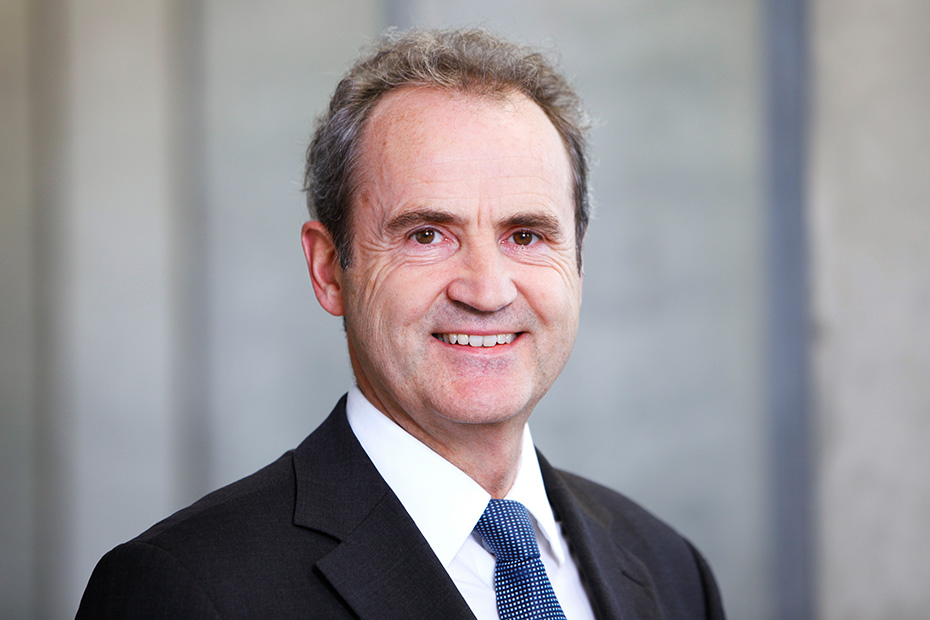Interdisciplinary cooperation
Ten years ago, ETH took the bold step of establishing a presence abroad in the form of its very own research centre. This year, the Singapore-ETH Centre launched its third research programme – and new insights are already making their way back to Switzerland.

Unlike most base camps, this one is not at the foot of a remote mountain, but in the middle of a bustling city. The Singapore-ETH Centre (SEC) is the first research centre established by ETH outside Switzerland. It was founded in 2010 in partnership with Singapore’s National Research Foundation (NRF) with the goal of addressing key challenges of urbanisation. “Asia is seeing huge growth in city sizes and populations. We need to be close to those challenges to address them properly,” says former Managing Director Remo Burkhard. He was involved with the SEC from the very beginning, travelling to Asia to set up the centre together with SEC Director Gerhard Schmitt. The research community there grew to 100 people after just 15 months – and by next year, the SEC will have over 200 researchers from 25 disciplines and 20 different countries. At the end of this year, however, Gerhard Schmitt will hand over his position as director to Gisbert Schneider.
Cooperation with practical benefits
Singapore is not just a gateway to Asia: it also offers a start-up culture that has the energy and enthusiasm to make the best use of new ideas. The CREATE campus, where the SEC is located, was set up at breakneck speed. Its open and welcoming format – including spin-offs from leading universities – gives rise to all sorts of unplanned encounters between researchers. “It’s a fascinating and tremendously vibrant ecosystem,” says Detlef Günther, Vice President for Research and Corporate Relations at ETH and Co-Chair of the SEC Governing Board. “We’re keen to foster interactions with other universities on site and in Singapore,” says current Managing Director Thomas Rufener. He notes that spontaneous encounters have often led to exciting research projects such as Natural Capital Singapore, which seeks to assess the quality of Singapore’s ecosystems as well as their environmental and socioeconomic value.
At the core of the SEC are its five-year research programmes in which the SEC acts as lead partner. The first programme, Future Cities Laboratory, combined science and design to promote a sustainable and liveable urban future. Collaboration with industry and the Singapore authorities enables rapid implementation of development concepts such as 3for2, an energy-efficient building cooling system developed by a team led by Arno Schlüter. This system offers space savings, which provide economic leverage while using 40 per cent less energy than conventional buildings.
The tenure of SEC Director Peter Edwards (2013–2017) included the launch of the Future Resilient Systems programme, which aims to make complex infrastructure systems more robust and resilient. At the start of this year, the SEC embarked on its latest research programme, Future Health Technologies. In collaboration with Singapore’s universities and hospitals, researchers will be developing more patient-centric digital technologies for prevention and care, including chatbots. “Our goal is to find answers to pressing questions on ethics, data security, the usability and usefulness of AI algorithms, and much more,” says Günther. COVID-19 has added a whole new dimension to their research work: with many patients reluctant to attend doctors’ offices in person during the pandemic, the development of chatbots and virtual medical consultations looks set to attract greater interest in many regions, including Europe.
Inspiration from Asia
All the SEC’s research programmes have been extended based on their success so far. Rufener argues that this has been possible thanks to the SEC’s reputation as a reliable partner with a long-term focus, which is seen as an important quality in Asia. In addition to acting as Switzerland’s calling card, the SEC has paved the way for more in-depth interaction with the private sector. “There was significant transfer of knowledge from Europe to Asia in the first few years, but this flow of information is increasingly coming full circle. Key findings can now circulate freely between Singapore and Switzerland.” says Schmitt.
In 2019, Zurich’s urban planning department sent a delegation to Singapore to draw inspiration from the Cooling Singapore research project. The results of research on urban heat islands in Singapore has now been incorporated into the city of Zurich’s technical plans for heat reduction. The Future Cities Lab Global research programme, which is currently at the planning stage, aims to further strengthen interaction between ETH, the SEC, local partners and beyond. Its goal is to examine and compare urbanisation in Switzerland with urbanisation in tropical and subtropical regions facing similar issues.
“We want to keep evolving and growing together. We will need to forge closer and more interdisciplinary ties between individual research programmes if we hope to make major contributions to global challenges,” says Günther, laying out his vision for the SEC. Gerhard Schmitt refers to the centre as a living lab – a laboratory that works with a user-centric methodology in real-life contexts – and he is already seeing a great deal of interest in opening similar centres in Africa, India and China.
This text has been published in the current issue of the Globe magazine.
Related articles
- chevron_right Welcome and Farewell for Singapore-ETH Centre (ETH News 24.09.2020)
- chevron_right Rethinking healthcare systems (ETH News 06.12.2019)
- chevron_right Keeping on researching in Singapore (Globe magazine 16.04.2016)
- chevron_right ETH launches Future Resilient Systems Programme in Singapore (ETH News 14.11.2014)
- chevron_right ETH Research Centre in Singapore (ETH Life 16.03.12) Inaugurated

Comments
No comments yet